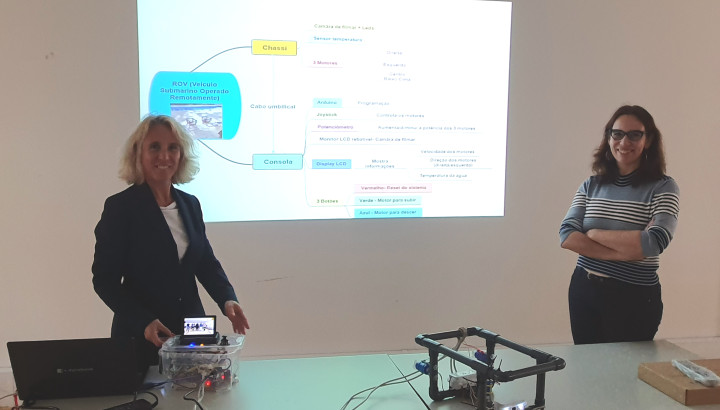SUMMARY:
This project was one of the 2 research projects distinguished in 2023 by program Mares Circulares (promoting projects and start-ups related to ocean cleaning, environmental awareness and circular economy), receiving funding from Coca-Cola to establish the monitoring of different types of microwaste (microplastics, micropollutants and microbes) at the natural park of the Ria Formosa (Algarve, Portugal) during 2023. More details: Mares Circulares V awarded projects ; CCMAR project awarded by Coca-Cola
Webpage under construction with the AETC students (secondary school, Faro): www.microwaste.pt (in portuguese for now, but including the project video in both Pt and En versions)
MOTIVATION:
The oceans host enormous biodiversity and its conservation and sustainable exploitation require a better understanding of marine life at various levels, from macro to microorganisms, as well as the assessment of anthropogenic impacts on its balance. The exponential accumulation of plastic in marine environments is known for its physical effects on marine animals, but the impact of its degradation into micro and nanoparticles, which can adsorb chemical pollutants and microbes and enhance the contact of marine organisms with mixtures, is unknown.
OBJECTIVES AND TASKS:
This project aims to monitor different types of microwaste from urban sewage and its possible release into marine environments through effluents from wastewater treatment plants (WWTPs), towards further exploration of its possible accumulation and impact on marine life. It is composed by the following tasks:
VIDEO
TEAM:
The project will join a multidisciplinary team of researchers, companies and schools with great potential to study the dissemination and impact of marine micro-waste, contribute to improve the efficiencies of sewage treatments and monitor the quality of environmental water while encouraging greater literacy, awareness and environmental protection in civil society.
PARTNERS:
Águas do Algarve SA (responsible for the drinking water supply, sewage treatment and quality control for the Algarve region)
Empresa Portuguesa Das Aguas Livres SA (SA) / Grupo Águas de Portugal (Water Quality accredited laboratories and company responsible for drinking water supply, sewage treatment and quality control in the central region of Portugal, including Lisbon)
AtlantikFish (extensive aquaculture company)ADM-Biopolis , Valência, Spain (Probiotics and Genomics / Metagenomics large-scale sequencing)
Escola Secundária de Loulé (profissional courses, Robótics club and Ciencia Viva club )
Agrupamento de Escolas Tomás Cabreira (cursos profissionais, Clube Pr’Oceano e Ciencia Viva club )
SPONSORS:




